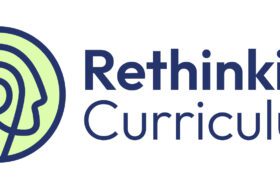Executive functions, including working memory, inhibition and cognitive flexibility, play a crucial role in the development of academic skills and continue to impact educational achievement throughout childhood and adolescence. In this webinar recording, we provide teachers and support staff with an understanding of how executive functions can be supported in the classroom in order to enhance learning of children and adolescents with SEND. The webinar explored how working memory, cognitive flexibility and inhibition affect learning in the classroom including: learning to read and reading comprehension, handwriting and written production, mathematical reasoning and numerical operations. The webinar considered how to identify executive function difficulties and mitigate these through strategies that support the achievement of children and adolescents with SEND. Case studies of children with neurodevelopmental disorders (e.g., autism spectrum disorder, ADHD) were proposed to partici
Join us or sign in now to view the rest of this page
You're viewing this site as a guest, which only allows you to view a limited amount of content.
To view this page and get access to all our resources, join the Chartered College of Teaching (it's free for trainee teachers and half price for ECTs) or log in if you're already a member.





